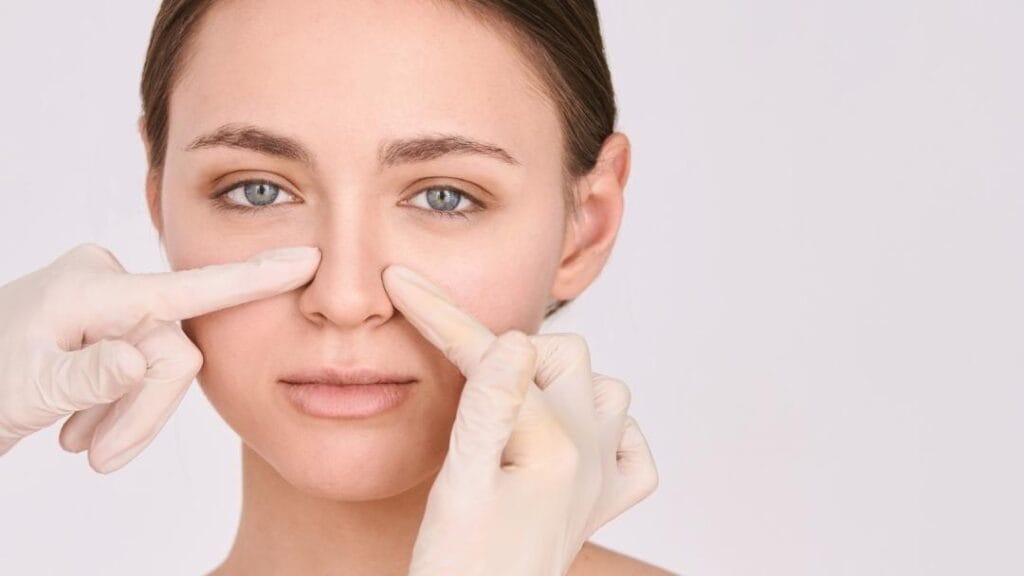Rhinoplasty is one of the most common cosmetic surgeries that patients choose to undergo. It is a procedure that rebuilds the shape of the nose to make it more attractive and, in many cases, reduce its size. Like any other operation, it entails certain care in the postoperative period to have an adequate and smooth recovery. And even more so considering that the nose is in the center of the face, so its exposure is high. One of the most common doubts that our patients have is how to sleep after a rhinoplasty. To answer, we present this blog entry with all the information you need.
When recovering from rhinoplasty, it is advisable to sleep well and rest a lot. Doing it the right way will help speed recovery by improving blood flow to the area and boosting the immune system. But the main problem is that it is not easy to sleep properly after an operation like the nose job. Great care must be taken not to hurt, hit or put pressure on it, as it becomes very sensitive in the days that follow. One of the fundamental issues is the position in which you sleep. In many cases, it is difficult to change people's habits, but it takes an effort to adopt the correct posture that benefits recovery.
How to sleep after a rhinoplasty: recommended position
Without a doubt, the most recommended sleeping position after rhinoplasty is on your back. This position considerably reduces the risk of injuring the area, since it is out of contact with everything that surrounds it when sleeping. In addition, it is convenient to use some pillows to raise the position of the head up to an angle of 45 degrees. This will help reduce the swelling of the operation in less time. Including some pillows around the space where you are lying will help keep you from moving during the night, reducing the risks of affecting your nose. And placing some under your legs can improve circulation and reduce back pain.
The question of how to sleep after rhinoplasty also has a time frame. In general, the estimated time in which you should sleep on your back is one to two weeks. For people who are not used to it, it can be somewhat uncomfortable to sleep in this position. But you should know that if you sleep on your side, for example, you can damage your nose. Pressure on the area can cause inflammation and could also cause nasal congestion. But, without a doubt, the least recommended thing to do during this period is to sleep on your stomach. The risks of damaging the nose and even jeopardizing the result of rhinoplasty rise considerably when sleeping in this position, since the area is subjected to pressure from the entire head. The nose is very sensitive after the operation, so you should avoid sleeping this way at all costs.
Tips on how to sleep after rhinoplasty
There are some additional tips you can apply to improve recovery after rhinoplasty and reduce risks. One of the recommendations that are usually given to patients is to sleep alone. Although it is very common to sleep with your partner, or even children or pets, during recovery this can be a problem. Of course, they won't do it on purpose, but they could unintentionally bump or damage your nose during sleep, and it's a risk we should avoid if possible.
Another no less important issue about how to sleep after rhinoplasty is the consumption of certain beverages such as coffee or tea. Although for many people they represent part of the daily routine, these drinks can make it difficult to sleep and rest. During recovery, it is important to rest as well as possible and sleep the necessary hours so that the body can restore itself correctly. It is a good idea during this period to reduce the amount of caffeine consumed, so that the nights are more serene and it is possible to fall asleep correctly.
In the same vein, using your mobile phone less than usual, especially at night, will help you sleep better. In fact, it's a good idea to move your phone away from your bed, so you're not tempted to look at the screen before you sleep. This can make it more difficult to fall asleep and stay asleep for the appropriate amount of time.
All these recommendations on how to sleep after rhinoplasty are important to improve recovery. Always remember to consult the specialists for any question and inconvenience. Do not hesitate to make an appointment with Dr. Carlos Spera, a specialist in cosmetic surgery with extensive experience, to evaluate your case and receive advice on rhinoplasty or any other surgery you wish.






